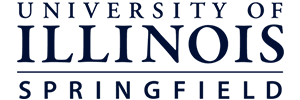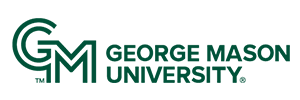University of Illinois at Chicago Online MS in Health Informatics
The University of Illinois at Chicago College of Applied Health Sciences offers a fully online master of science in health informatics (MSHI) with various tracks: general, project research, thesis research, or health data science.
The goal of these degrees is to equip professionals with skills in technology and leadership to improve patient experiences and outcomes. Students enjoy a comprehensive program combining academic theory with real-world application, designed to open up the world of health information technology and its role in the present and future healthcare industry.
Nurses, pharmacists, researchers, imaging professionals, information technologists, healthcare administrators, public health officials, physicians, and others in the healthcare industry may be especially interested in the MSHI degree. Those with a bachelor’s degree and at least two years professional work experience may apply.
Graduates may go into healthcare roles including risk analysis, consulting, research, evaluation, informatics, leadership, management, educational training, patient safety management, point of care management, policy development, patient advocacy, data application, or data analysis, among others.
For the latest academic year, we have 170 schools in our MHAOnline.com database and those that advertise with us are labeled “sponsor”. When you click on a sponsoring school or program, or fill out a form to request information from a sponsoring school, we may earn a commission. View our advertising disclosure for more details.
What to Expect from the UIC Online MSHI Program
Admission Requirements: Applicants to the online MSHI program must hold a bachelor’s degree from a regionally accredited institution with a GPA of 3.0 or higher. A minimum of two years professional work experience is also required, but applicants do not need GMAT/GRE scores.
Applicants to the project or thesis research tracks must have taken (or must complete) a course on basic computing skills and graduate-level basic statistics.
Application materials include a fee, official transcripts, two letters of recommendation, a personal statement, and a resume. International students must provide proof of language proficiency through TOEFL, IELTS, or PTE scores.
Study Plan: The online MSHI can be completed in two to 2.5 years. Students have up to six years to complete the program. Courses meet over eight weeks, and the programs begin in fall, spring, or summer. Students should expect to spend 25-30 hours per week on each three- or four-credit course. Students complete a capstone course, and a practicum may be required in the area where the student lives and works.
Curriculum: The University of Illinois at Chicago online MSHI program consists of 38 to 45 credits, comprising prerequisites, core courses, specialty track courses, and electives. Prerequisites may be waived depending on one’s academic history or professional experience. These include medical terminology for health information management and the fundamentals of health information management.
Required courses for all tracks include healthcare data, information sources in biomedical and health information sciences, communication skills in health informatics, ethics & legal issues in health informatics, healthcare information systems, management of healthcare communication systems, health information systems analysis & design, social and organizational issues in health informatics, and health informatics capstone experience.
General Track: The topics in health informatics course is also required. Students then take electives as needed to reach the 38 to 45 credits. Electives for the general track are numerous and may include qualitative research methodology, consumer health informatics, knowledge management in healthcare organizations, leadership development in health informatics, and several more.
Project and Thesis Research Tracks; Additional required courses are strategic inquiry in biomedical and health information sciences, a seminar in biomedical and health information sciences, and one of the following: project research in biomedical and health information sciences or thesis research in biomedical and health information sciences.
Students then take electives to meet the total credit requirement. There are many electives to choose from, including patient safety topics in health informatics, informatics for the clinical investigator, mobile health informatics, transforming healthcare using business intelligence and predictive analytics, healthcare IT vendor management, and more. Students in the project track earn two credits in the project research course. Students in the research track earn eight credits in the thesis research course. In addition, students following these tracks must have prior academic work including a course on basic computing skills and a graduate-level basic statistics course.
Health Data Science Track: The university is also adding a health data science track beginning in 2018. In addition to the prerequisites and core courses listed above for all tracks, the health data science track requires essentials of health data science, applied statistics for health data science, and two of the following: knowledge management in healthcare organizations, transforming healthcare using business intelligence and predictive analytics, theoretical concepts of clinical decision support systems, practical implementation of clinical decision support systems, and health data analytics.
Online Experience: Courses for the online MSHI program are asynchronous and 100 percent online. Assignments include both individual and group projects, tests, quizzes, and discussion posts. Students in the research track must choose a research area that will eventually be included in their portfolio.
Students should have a working knowledge of computers, access to a PC or Mac, a high-speed internet connection, an active antivirus program, a current processor, a mid-range graphics card, at least 4 GB RAM (but 8-16 is recommended), Adobe Acrobat Reader DC or newer, and a browser (e.g., Internet Explorer 11, Safari 8 or Mozilla Firefox ESR). Note that wireless internet connections may not be sufficient for working in the university’s learning management system.
On-Site Requirements: The MSHI program courses are 100 percent online. A practicum must be completed toward the end of the program in the area where the online students live.
Paying for the UIC Online MSHI Program
University of Illinois at Chicago Online MS in Health Informatics tuition numbers are listed in the tables below. Prospective online students should contact the admissions department of the University of Illinois at Chicago for cost clarifications and updates. UIC offers two scholarship opportunities to qualified applicants, after applying for federal graduate student loans through the FAFSA and completing a certain number of credits in the program.
Prospective students can learn more by contacting the University of Illinois at Chicago Office of Student Financial Aid. Students may also seek scholarships and financial aid from outside resources, including some businesses offering tuition reimbursement programs for employees seeking an advanced degree.
University of Illinois Chicago Online MS - Health Informatics
| Degree Level | Master's Degree |
| Program Start Dates | Spring, Summer, Fall |
| Credits Needed to Graduate | 38 |
| Time to Complete? | Complete the program in 2 to 2.5 years, but take up to 6. |
| 100% Online? | Yes |
| Program Accreditation | CAHIIM |
| Level of Education Required? | Bachelor's degree or higher |
| GRE or GMAT Required? | No |
| Work Experience Required? | Yes, A minimum of 2 years of work experience in industries that can directly translate to health informatics |
| Credit Hours | 38 |
| Average Cost Per Credit | $750.00 |
| Estimated Program Tuition * | $28,500.00 |
Tuition is calculated based on credits, at the published tuition rate. For programs with variable tuition rates, we use the rates for part-time students. Tuition number represents the cost of tuition for the entire program, not per semester or year. Estimated total tuition does not include additional fees, unless otherwise specified. Please check here for any tuition updates.





